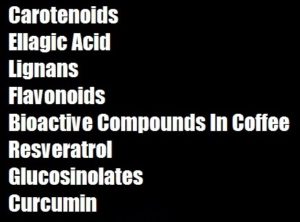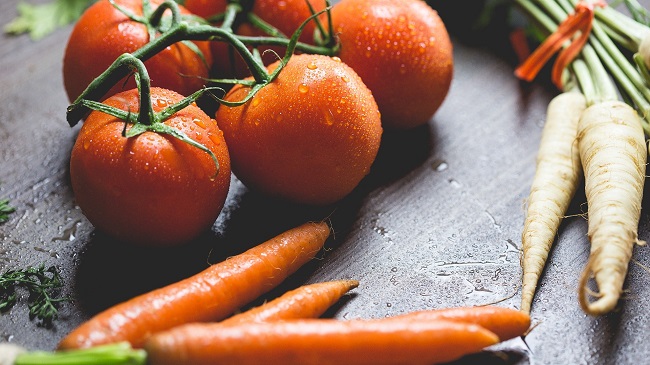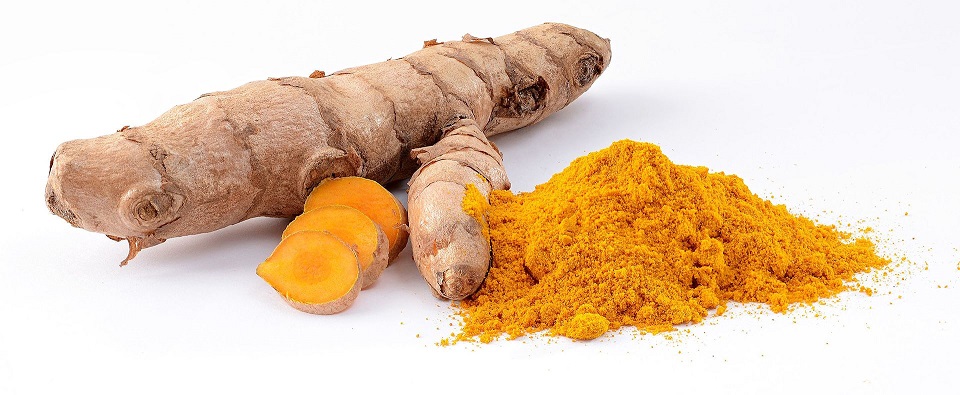Phytonutrients – What You Need To Know
Summary: Research shows that phytonutrients – such as carotenoids, ellagic acid, lignans, flavonoids, glucosinolates, curcumin, resveratrol and other bioactive compounds – help to prevent stroke, cancer, type 2 diabetes, heart disease, and premature death. [This article first appeared on the LongevityFacts website. Follow us on Google+ or Reddit. Author: Brady Hartman.]
What Are Phytonutrients?
Whole plants contain thousands of natural compounds, called phytonutrients and phytochemicals. Deriving their name from phyto, the Greek word for plant, the terms are used interchangeably used to describe the health-promoting compounds found in all whole plants. While plants produce these chemicals to protect themselves from insects, germs, and fungi. Along with fiber, phytonutrients in our diet are the reason that fruits and vegetables help to prevent chronic diseases like cancer, stroke, heart disease, and premature death.
Fruits and vegetables contain tens of thousands of different phytonutrients and antioxidants.

Every Plant Is A Multivitamin
A multivitamin tablet contains a mixture of vitamins. In the same way, each piece of whole fruit or vegetable contains a mixture of phytonutrients. Phytonutrients work better when consumed in combination.
The consumption of fruits and vegetables has been statistically linked to reduced risk of cancer, stroke, heart disease and death. While correlation does not imply causation, it sure is a hint.
While there are thousands of phytochemicals, the seven most interesting compounds to researchers are carotenoids, ellagic acid, lignans, flavonoids, glucosinolates, curcumin, resveratrol and the bioactive compounds in coffee.

Carotenoids
Carotenoids are a type of antioxidant, a compound that fights free radicals. Carotenoids are believed to have strong cancer and inflammation-fighting properties and boost the immune system. Some carotenoids are believed to ward off cardiovascular disease.
The most famous carotenoid is beta-carotene. Recent research has shown beta-carotene to be healthy when consumed as part of a whole food, such as in carrots. However, for smokers, beta-carotene has been shown to be unhealthy when consumed as a dietary supplement and linked to an increased risk of death.
The moral of the story: phytonutrients work well together as a team, and not so well when extracted and placed into a supplement.
Ellagic Acid
Ellagic acid is a type of tannin that is principally found in berries, such as strawberries, blackberries, cranberries, grapes, and raspberries. Ellagic acid is both antioxidant and anti-inflammatory and linked to preventing cancer, reducing arterial plaque, reducing blood sugar and lowering blood pressure. Ellagic acid has been shown to fight cancer in animal studies, but not in humans.
Lignans
Lignans are especially concentrated in seeds and whole grains, including poppy seeds, sesame seeds, oat bran and rye bran. The richest source of lignans comes from flaxseed. Lignans are thought to prevent hormone-related cancers. Studies have linked a high intake of lignans reduced endometrial and ovarian cancers.
Flavonoids
Flavonoids are powerful antioxidants thought to be anti-inflammatory and good for the immune system. Found in apples. quercetin is one of the more famous flavonoids and is believed to reduce the risk of asthma, heart disease, and certain types of cancer.
Cocoa and chocolate are rich in a flavonoid called flavanols. It’s these compounds that give cocoa and chocolate their heart-healthy benefits.
Glucosinolates
Glucosinolates are mainly found in cruciferous vegetables are responsible for the pungent aroma and sometimes bitter taste of these hardy vegetables. Glucosinolates have been shown to inhibit the development of wide variety of cancers in rats and mice, including cancers of the bladder, breast, colon, liver, lung, and stomach. Scientists are studying glucosinolates as a way to ward off cancer. While the results of animal studies have been promising, according to the National Cancer Institute (NCI), the results in humans have been inconclusive, so far.

Curcumin
The spice turmeric has been used as a medicinal remedy in India for centuries. Curcumin is a naturally occurring compound that gives turmeric its distinctive yellow color. Curcumin is both an anti-inflammatory and an antioxidant. In animal studies, it aids in combating cancer cell growth and tumors. In fact, curcumin has been shown in animal studies to prevent the spread of mouth, stomach, liver and colon cancer. Researchers are currently seeing if they can replicate this effect in humans.
Based on positive animal trials, researchers propose that curcumin could work in humans, helping to reduce the symptoms of inflammatory diseases like rheumatoid arthritis, cystic fibrosis, and Alzheimer’s disease.
Resveratrol
Primarily found in grapes and red wine, resveratrol made headlines a few years back when it was touted as the newest cure for aging. As a sirtuin-boosting compound, resveratrol is also found in peanuts, grape juice, cocoa, blueberries, and cranberries. While resveratrol was shown in studies to benefit overweight mice, it didn’t benefit healthy ones. Scientists haven’t given up on the compound and are still continuing to study it for its abilities in reducing insulin sensitivity.
Bioactive Compounds In Coffee
The roasted coffee bean is rich in bioactive compounds with strong antioxidant powers. In fact, for those of us who eat a standard Western diet, coffee is the healthiest ‘food’ we consume. In fact, studies show that the average person gets more antioxidants from coffee than from fruits and veggies combined. Coffee contains about a thousand bioactive compounds, including polyphenols, cafestol and kahweol, and chlorogenic acid (CGA). Studies show that coffee drinkers have lower rates of type 2 diabetes and coronary heart disease.
Read about the health benefits of coffee in this linked article.
Help Us Spread The Word
All it takes is one simple click on any Facebook link to repost this article and help us spread the word.
Disclaimer
Advice, Diagnosis and/or Treatment: This article is intended for informational and educational purposes only and is not a substitute for professional medical advice, nor for the diagnosis or treatment of any medical condition. Always seek the advice of a licensed physician with any questions you may have regarding a medical condition, and before changing your diet or exercise program. External Links, Endorsements & Photos: This article is not intended to endorse companies, organizations or products. Links to external websites, depiction/mention of company names or brands, are intended only for illustration and do not constitute endorsements.

thanks
[email protected]
You need to fix the pics .. nice article .. well written ..
thanks
You need to fix the floating widgets .. annoying